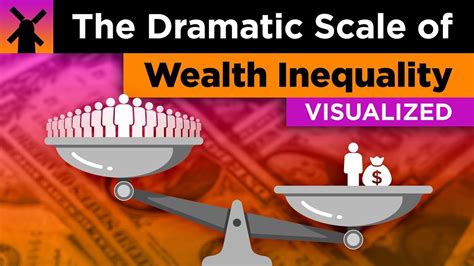The debate over wealth disparity and the focus on economic inequality remains a heated topic, especially in an era dominated by a handful of multimillionaires whose net worths overshadow the GDPs of small nations. This brings us to a crucial question: Should our attention be on fostering a society with exceedingly wealthy individuals like Elon Musk or Jeff Bezos with the promise that trickle-down benefits will eventually eliminate homelessness and raise living standards? Or should we focus on minimizing inequality by ensuring a more balanced distribution of resources at the cost of potential innovation and economic dynamism? This debate often takes center stage, particularly in cities with stark contrasts between affluence and poverty such as San Francisco and Los Angeles.
One perspective, as some suggest, wants a scenario in which we have multiple billionaire innovators like Musk, as long as this world comes with no homeless people. They argue that this type of system, where wealthy individuals drive technological advancement and economic growth, can benefit everyone. Yet, the reality of our existing economic system tells a different story. In places with high concentrations of wealthy individuals, such as San Francisco, we also observe significant homelessness. This apparent paradox raises questions about whether the creation of extreme wealth for a few can genuinely coexist with the eradication of poverty.
Critics argue that creating additional Musks won’t necessarily eliminate homelessness. They highlight that richer individuals often leverage their wealth to exert disproportionate influence over political and economic systems—systems that are then tweaked to favor their continued prosperity over that of others. For instance, the placement of affordable housing might be influenced by lobbying efforts or local policies that cater more to affluent residents than to vulnerable populations. Wealth can buy significant power and control, allowing the richest to mold socioeconomic structures in ways that perpetuate their status while potentially exacerbating socioeconomic disparities.
On the other side of the spectrum lies the argument that a society should strive to improve absolute living standards, regardless of the wealth disparity. Improved living standards mean that everyone has access to basic needs such as housing, healthcare, and education. A user aptly suggested that the primary focus should be on living standards over inequality, emphasizing that the presence of outrageously wealthy individuals does not necessarily mean others are worse off. This perspective underscores that while the relative measure of wealth disparity can influence societal contentment, the **essential** focus should be on ensuring that living conditions are advancing for all.
This viewpoint, however, does not come without significant pushback. Others maintain that relative wealth, and therefore inequality, has a profound effect on societal well-being and stability. Studies supporting this position suggest that people’s happiness and societal peace are closely tied to their relative measure of success and access to resources. High inequality is connected to heightened social tensions and unrest. From this angle, the concept of **“super-inequality”** is intrinsically at odds with a vision where everyone thrives. If a sector of the population becomes immensely powerful, human nature dictates the eventual exploitation of those with the least power, leading to systemic inequities and instability reminiscent of feudal eras.
The discourse is further complicated by the real-world implications of creating wealth through modern technological advances. Consider Elon Musk’s ventures; his wealth comes partly from tax incentives for electric cars and government subsidies for green technologies. While this might mean that the financial ecosystem is supportive of innovation, critics argue that these investments essentially represent taxpayer money being funneled into private enterprises which then benefit Musk disproportionately. Moreover, the complex interplay of relative wealth and contributions from both wealthy individuals and systemic innovations such as Tesla’s electric vehicles foregrounds a nuanced debate about the efficacy of wealth creation models.
Ultimately, this debate often boils down to a philosophical question: Do we value the potential for extreme innovation and the accompanying societal benefits at the cost of growing inequalities? Or do we prioritize a more equitable distribution of resources, even if it means tempering the potential scale of technological leaps? At the heart of it, many agree that human dignity and the basic right to an improved life should be paramount. Ensuring everyone’s basic needs are met should not be overshadowed by the quest for greater heights of wealth accumulation by a select few.


Leave a Reply